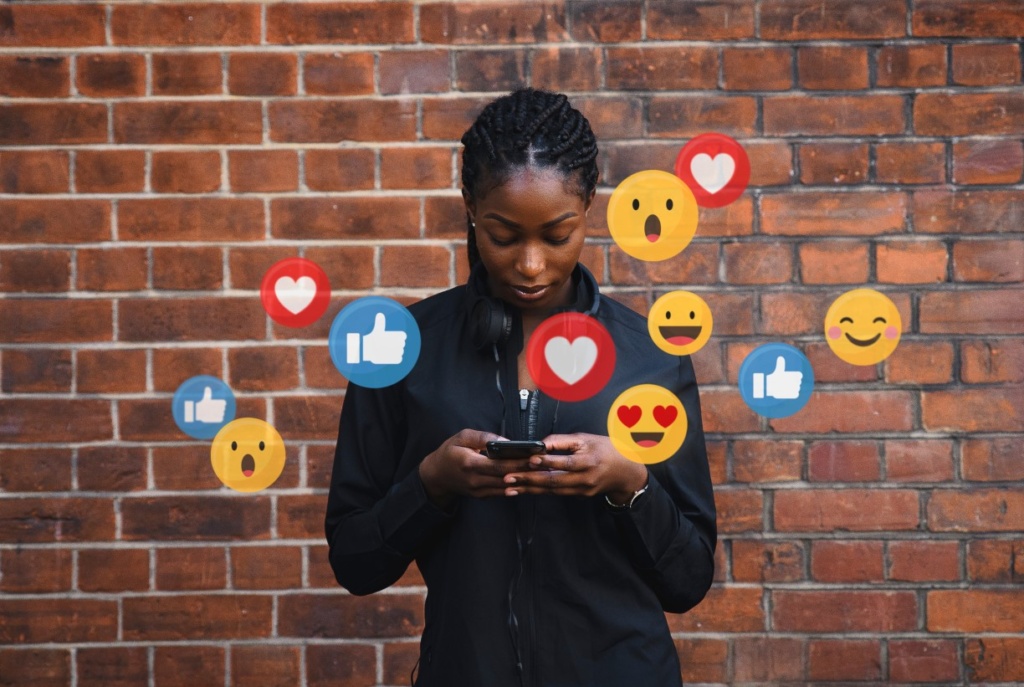Black users are drawn to social media, Stamps explains, as a way of both circumventing and counterbalancing the overwhelmingly negative portrayals of their racial identity group in mainstream media. Traditional news outlets, he says, have a “sordid history of presenting disparaging depictions of Black identity” as “violent, threatening and in need of restraint.” These negative stereotypes and stigmatizing narratives — one example, he notes, is vilifying Black people as exclusive abusers of welfare and other subsistence programs — both reflect and perpetuate systemic racism in American society, and directly “influence race- and class-based policy decisions, hinder efforts toward racial equity, promote racial resentment and encourage group conflict.”
By contrast, social media offers Black Americans refuge from racist narratives. Platforms like Facebook, Twitter and YouTube, Stamps explains, function as the digital equivalent of “the barber shop, the church and the beauty salon,” providing virtual spaces where Black people can come together to celebrate and affirm their racial identities and “laugh with and love on one another.”
Digital networks also foster a greater sense of group vitality, which Stamps defines as “the degree to which a group is invested in change and aims to challenge biased attitudes and injustices.” In so doing, social media becomes a platform for encouraging collective action. Perhaps the best-known example of social media use to champion social justice is #BlackLivesMatter, a hashtag created by Black female activists Alicia Garza, Patrice Cullors and Opal Tometi in response to George Zimmerman’s 2013 acquittal in the shooting death of Trayvon Martin, a Black teenager.
In the decade since, the hashtag has been used to protest structural racism in law enforcement, as evidenced by the disproportionate number of deaths of unarmed Black men. Its use in response to the 2020 murder of George Floyd proved pivotal in bringing national attention to racial injustice and police brutality: a Pew Research Center report found #BlackLivesMatter appeared 47.8 million times on Twitter in the two week-period following Floyd’s death, while a New York Times analysis determined that widespread use of the hashtag helped sway public opinion in support of racial equity and criminal justice reform. Further, #BlackLivesMatter and social media platforms became vital tools for organizing the largest racial justice protests in the U.S. since the Civil Rights Movement of the 1950s and ’60s.



